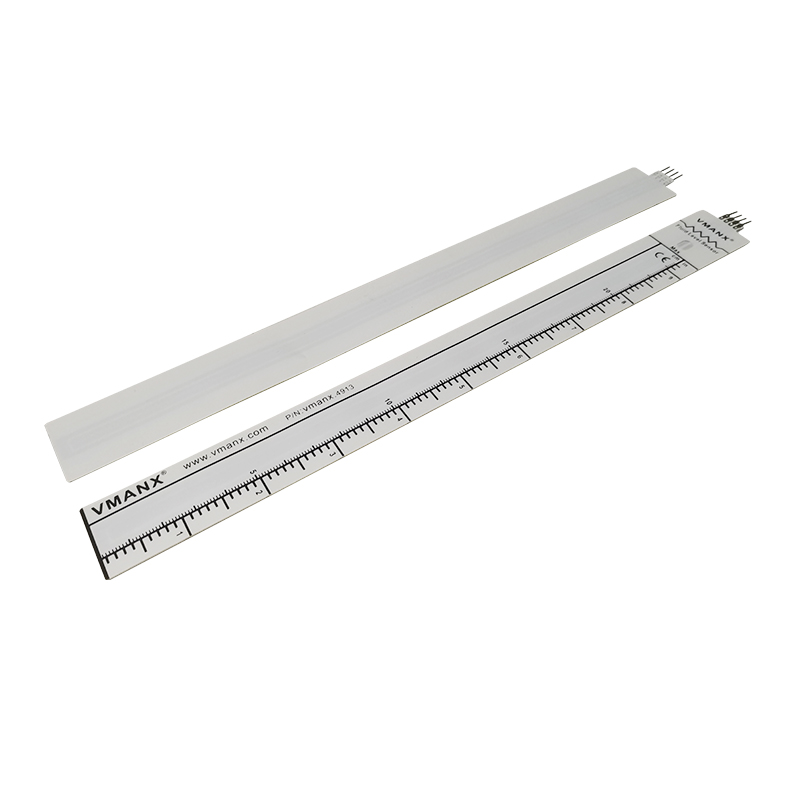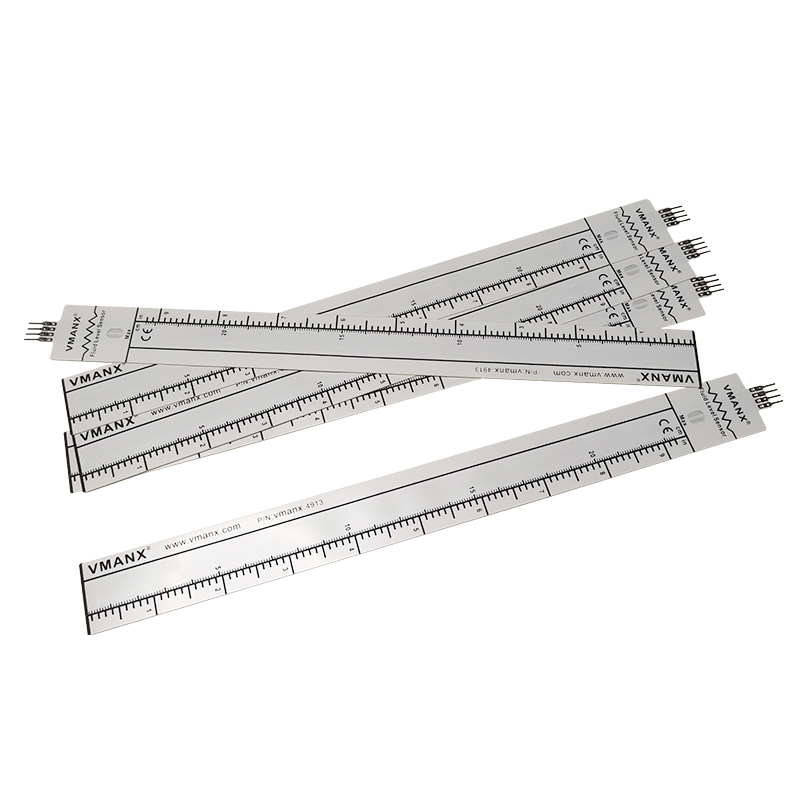
The VMANX sensor is a solid state, continuous (multi-level) fluid level sensor for measuring levels in water, non-corrosive water based liquids and dry fluids (powders).
Product Specification:
Description : The VMANX sensor is a solid state, continuous (multi-level) fluid level sensor for measuring levels in water, non-corrosive water based liquids and dry fluids (powders). The VMANX sensor is manufactured using printed electronic technologies which employ additive direct printing processes to produce functional circuits.
Theory of Operation : The VMANX sensor's envelope is compressed by hydrostatic pressure of the fluid in which it is immersed resulting in a change in resistance which corresponds to the distance from the top of the sensor to the fluid surface. The VMANX sensor provides a resistive output that is inversely proportional to the level of the liquid: the lower the liquid level, the higher the output resistance; the higher the liquid level, the lower the output resistance.

| VMANX.4913 Specifications | |||
| Sensor Length | Ref Resistance/KΩ | Sensor Length | Ref Resistance/KΩ |
| 1.97inch(5cm) | 2.27-2.71 | 3.94inch(10cm) | 1.74-2.17 |
| 5.91inch(15cm) | 1.16-1.62 | 7.87inch(20cm) | 0.65-1.07 |
Thickness : 0.0148inch(0.375mm)
Width : 1.06inch(27mm)
Power Rating: 0.5 Watts (VMax = 10V)
Temperature Range: 15°F - 150°F (-9°C - 65°C)
Connection and Installation : Connect to the VMANX sensor by attaching a 4 pin connector with pre-soldered wires to the pins. Do not solder directly to the pins. The inner two pins (pins 2 and 3) are the sensor output (Rsense). The outer pins (pins 1 and 4) are the reference resistor (Rref) which can be used for temperature compensation. Suspend the VMANX sensor in the fluid to be measured. To work properly the sensor must remain straight and must not be bent vertically or longitudinally. For best results install the sensor inside a section of 1-inch diameter PVC pipe. Double sided adhesive tape may be applied to the upper back portion of the sensor to suspend the sensor in the container to be measured. However, the liquid must be allowed to interact freely with both sides of the sensor. The vent hole located above the max line allows the VMANX sensor to equilibrate with atmospheric pressure. The vent hole is fitted with a hydrophobic filter membrane to prevent the VMANX sensor from being swamped if inadvertently submerged.